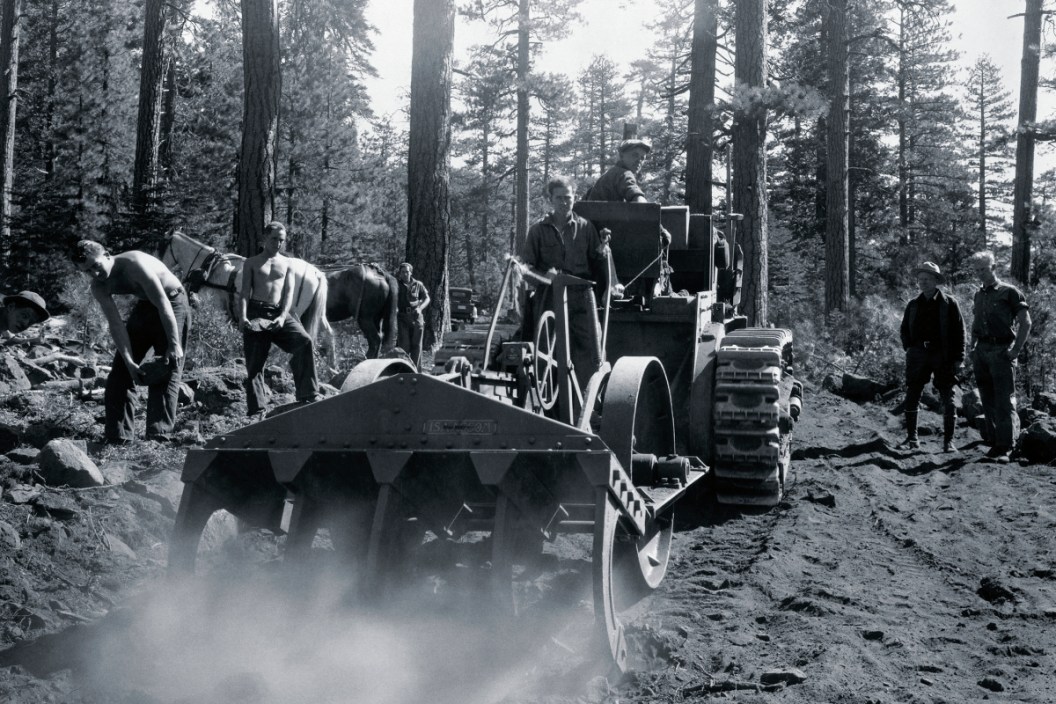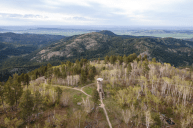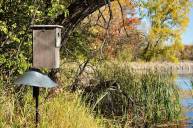Could a return of the Civilian Conservation Corps be a boon for conservation?
Here in the 21st century, we hear a lot of talk about conservation and preserving precious natural resources for future generations to enjoy. Unfortunately, these days many of our state parks and even the National Park Service find themselves understaffed for the tasks at hand. Especially when it comes to working on infrastructure projects to improve roads and facilities.
These days we see all sorts of issues with the wild places of America. From horribly destructive wildfires to invasive species problems in places like Texas and Florida. Not to mention the aging infrastructure of many of our public areas and favorite parks.
It got us thinking back to the past a bit. Mostly to the age of the Civilian Conservation Corps. If you are not familiar, it's the program that is responsible for many major roads, fire lookouts, dams, tree plantings, and other forms of conservation work in the 1930s and 40s. It has us wondering if a return of the larger federal program might be just what our precious natural resources need.
What was the Civilian Conservation Corps?
First, a little primer for anyone who has never heard of the CCC. We must set the stage a bit first. In 1932, America was in the middle of the Great Depression and jobs were incredibly scarce. President Franklin D. Roosevelt knew he had to do something to improve conditions quickly and his solution was a series of federal government programs and public work projects known as "The New Deal."
One of those New Deal programs was the Civilian Conservation Corps. The idea was to give unemployed men between the ages of 17-28 simple manual labor jobs working in forestry. These enrollees were paid about $30 a month, most of which was sent home to their families. The work program also supplied food, shelter, and clothing. It also provided useful education programs the CCC enrollees could use later in life. Indeed, many CCC alumni later attributed the program as being a key time in their lives. This aspect of the program was especially helpful since many of the young men had a limited education less than high school. They were overseen by reserve officers of the U.S. Army. Enrollment lasted six to 18 months depending on how well each worker performed his duties.
The CCC program also provided some vital work opportunities for African Americans and Native Americans. According to NCPedia, some of the first CCC camps assigned black men to camps randomly without a thought to segregation. Unfortunately, they were later separated by race, but it is still interesting to learn of a program where segregation wasn't happening, even if only briefly, in the early 1930s. The CCC also had programs that provided work for veterans of World War I.
One thing many people do not realize is the magnitude and significance of many CCC projects. According to the U.S. Forest Service, the three million men employed by the CCC during its existence were responsible for the development of 800 state parks, and campgrounds, 125,000 miles of truck trails, vital flood and erosion control work, 89,000 miles of telephone lines, and a staggering three billion trees planted. This conservation program effectively helped shape our national forests, parks, and state park systems as we know and love them today.
Unfortunately, in 1942, congress ended the CCC program in response to the U.S. entering World War II. The draft had just been instituted and the young men involved in the program were needed for the war effort. While many states run their own smaller-scale version of the CCC today, the larger federal program never returned. Probably because it was not needed after the war when many veterans were able to find meaningful work.
What benefits could come from a new CCC? And what work could they do?
If the CCC were to be restarted, it could be a great opportunity for many youths in this country. Obviously, we'd have to change things up a bit. The pay and other benefits would need to be enough to appeal to a younger generation that is less inclined to take manual labor jobs. The program was also originally for young, unmarried men. That's obviously not going to fly anymore. We could start by opening it to both men and women regardless of marital status. Perhaps we could target it more at college students. Specifically those who are looking into getting a degree in fields dealing with conservation or forestry. Although it could be a great opportunity for those getting into engineering too. One of the side effects of the CCC was that it ignited a love of the outdoors in many of the participants. Something we could use right about now, especially in the hunting and fishing spaces.
The fact the CCC was not meant to be a permanent job means young people could feel more comfortable taking one of these jobs far away from home knowing it is just a temporary gig. I wish I had known about the state level programs when I was younger. It gives them a chance to meet new people and grow their skill set by working with their hands. We are always talking about how some younger people are lacking in basic life skills, this would be a great place to learn them. It would help them expand their horizons and perhaps foster a love for our nation's public lands they never knew they had.
As for projects they could tackle, they could start with some vital emergency conservation work. We've had a lot of natural disasters in recent years like forest fires and soil erosion that has led to devastating mud and rockslides that have left thousands homeless. In the southern U.S., we have plenty of flooding issues that could probably be improved by repairs and updates to aging flood walls and control gates.
However, we are most excited by the idea of larger projects like reforestation of areas that have been thoroughly logged. How about some much-needed improvements to our local state parks and state forests? I visited Michigan's Upper Peninsula back in September and one thing I noted was tons of closed trails and roads in and around state and national forests up there that were simply worn out and in need of some major repair work.
It's not just manual labor where we see opportunities with a new variant of the CCC either. The original program had some young men eliminating predators from unwanted areas. Why don't we put a new CCC to work on something like the invasive Burmese python and iguana problems in Florida? Or even better, why not get them on the feral hog problem in Texas? The original CCC employed many veterans, and we once again have plenty of them who are homeless or simply looking for work. Why not put these men and women who are already trained in safe firearms handling to work taking down sounders of hogs in the Lone Star State? Then donate the useable meat from the smaller hogs to homeless programs? It would be win-win all around.
Another invasive species problem they could tackle would be the Asian carp invasion. Biologists are extremely worried about them reaching the Great Lakes. Let's get an army of young folks from diverse backgrounds together to think up solutions to help combat the problem hands-on. Maybe they build new barriers to keep them out. Maybe they participate in massive electrofishing operations to remove them. Either way, there's got to be a place for a program like the CCC helping there.
Many of our nation's national parks are now seeing previously unprecedented numbers of visitors, stretching many of the campgrounds, lodges, and other facilities to their breaking point. This would be a good time to put these young people to work constructing badly needed updates to that infrastructure to handle modern crowds. Really, the possibilities are endless with a new CCC program.
How would we make all this happen?
I'll be honest, I'm not quite sure how you'd get the ball rolling on a new CCC program. Nor am I quite sure how one would go about funding it and other logistical issues. However, it seems like there are many problems with our public lands, wildlife, and conservation in general that could be addressed by the creation of a new program. Sometimes looking to our past can help provide the solutions to move forward in the future. We may never see another CCC program beyond the state level, but if any future politicians are reading this, one way to get me on your side is to start looking at a rebuilding and rebranding of the old national CCC programs.
Products featured on Wide Open Spaces are independently selected by our editors. However, when you buy something through our links, we may earn a commission.
For more outdoor content from Travis Smola, be sure to follow him on Twitter and check out his Geocaching and Outdoors with Travis YouTube channels.
NEXT: THE AXIS DEER AND HOW THEY'RE IMPACTING PARTS OF THE UNITED STATES
WATCH





